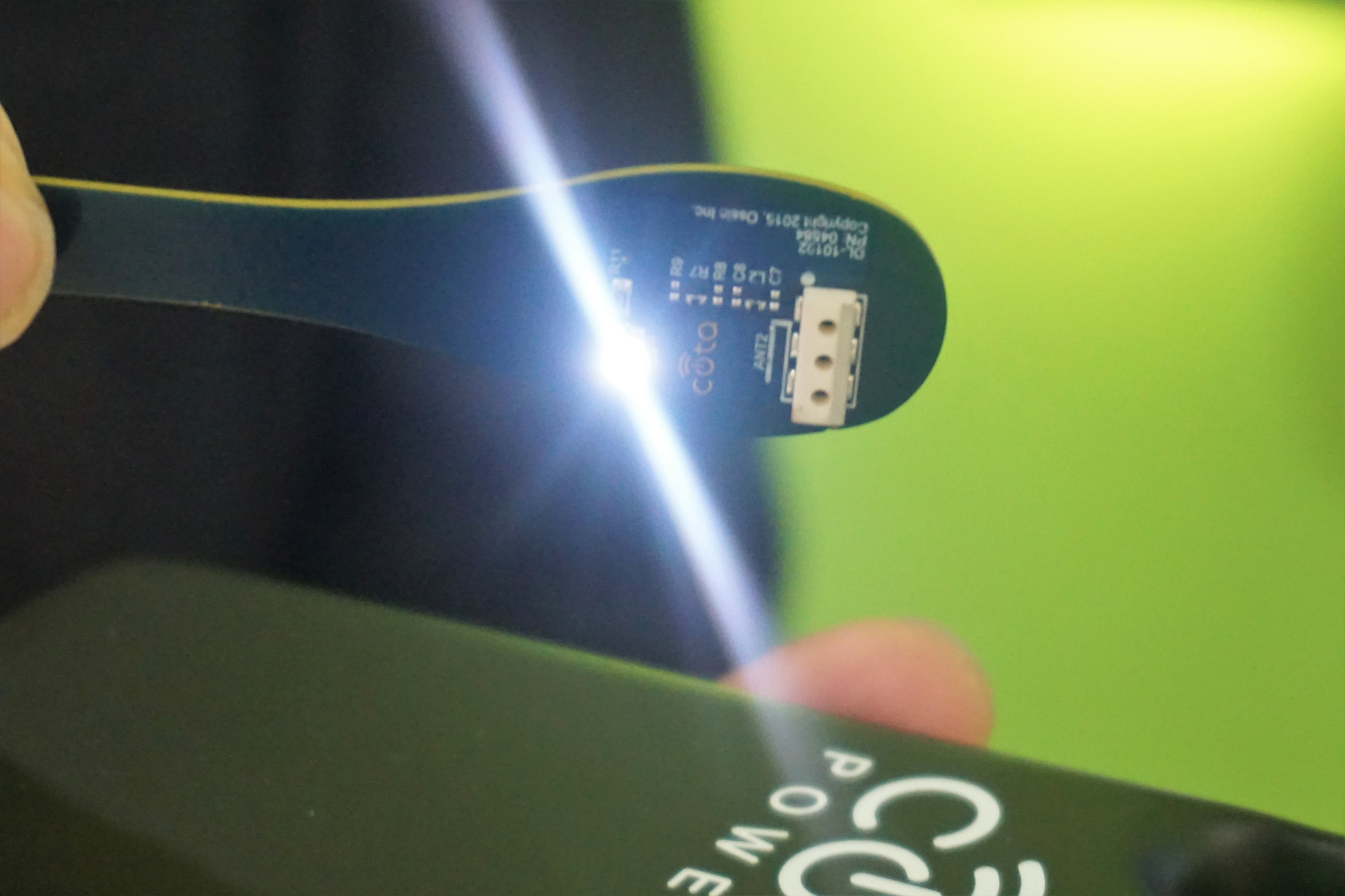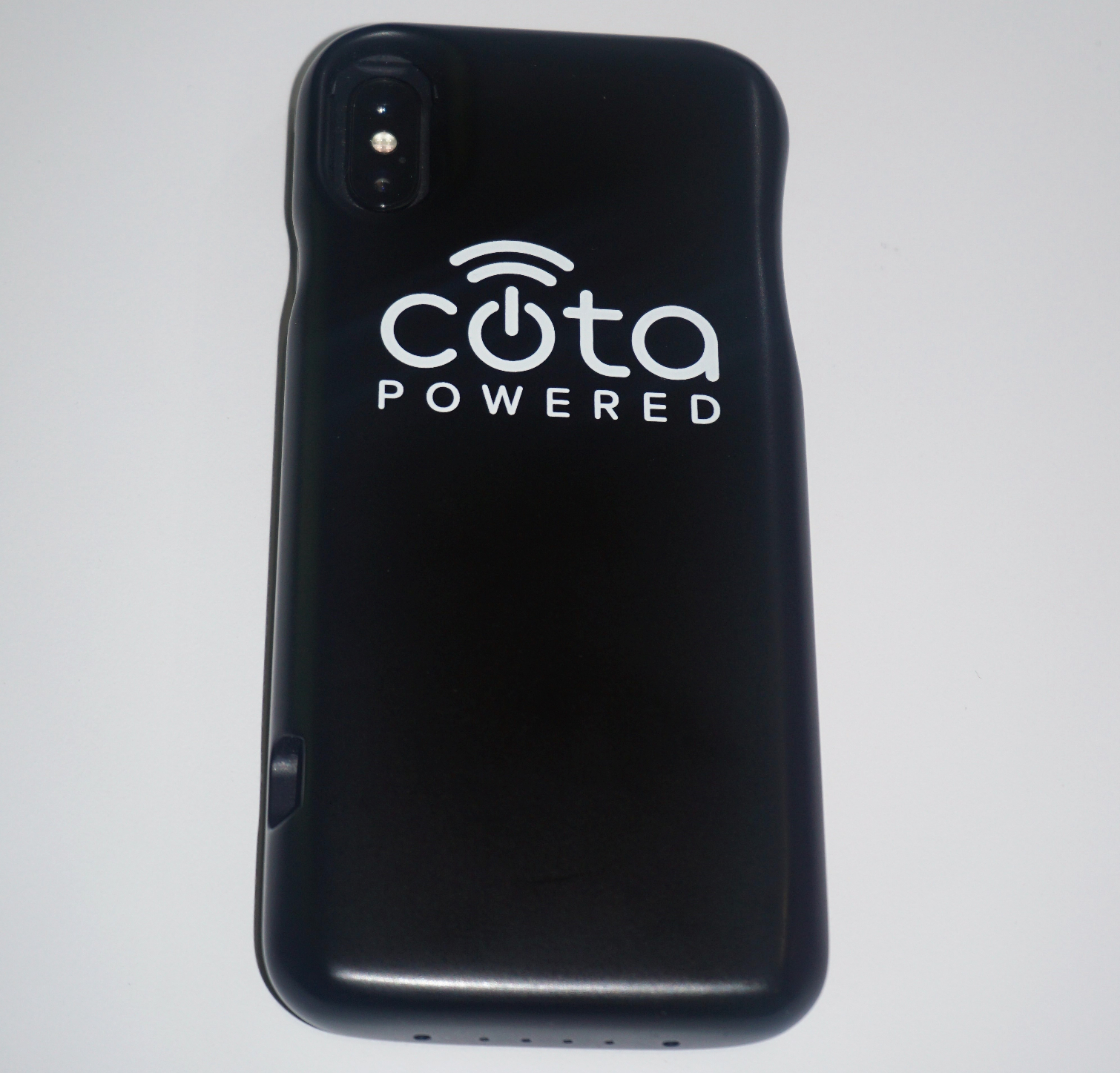Spigen’s Making Cases That Wirelessly Send Power From Your Wall to Your Phone
What if your case could protect, stylize and charge your phone all at the same time? Well, case maker Spigen and wireless charging technology vendor Ossia are making that a reality with the Forever Sleeve smartphone case. The accessory, announced during CES and expected to debut in 2020 or earlier, is equipped with a sensor that receives power from a transmitter, charging your device wirelessly.
The magic behind this really comes from Ossia, who developed the Cota Real Wireless Power tech. It uses a silicon chip that sends a signal that bounces off objects to connect to a transmitter, which in turn sends power to the device. The transmitter can take various form factors, including inconspicuous ones you wouldn’t even notice, and be paired for doubling its range. With one transmitter, you can charge a device up to 10 meters away, whether it’s on the table, in your pocket, or moving around with you.
The easiest way to think of the transmitter is like a Wi-Fi router. Ossia expects it to operate at 5.8 GHz frequency by the time the Spigen cases are ready and says it can power a mind-blowing 1,000 devices simultaneously.
If you’re concerned about wasting energy, note that the transmitter is not constantly sending out power. That’s only activated if a device with the sensor is in range and in need of a charge. Ossia claims the tech is 500 times more efficient than a AA battery.
Since Ossia licenses its technology, Spigen will be deciding on pricing for its case and necessary transmitter. However, Ossia said it doesn’t expect them to be more than $100. Spigen will also be designing the case, which Ossia assured me would be much more stylish than the prototype they’re showing at CES.
The wireless charging company is also hopeful that by the time the case is released, its transmitters will be in more business locations around the country.
Get Tom's Hardware's best news and in-depth reviews, straight to your inbox.

Scharon Harding has over a decade of experience reporting on technology with a special affinity for gaming peripherals (especially monitors), laptops, and virtual reality. Previously, she covered business technology, including hardware, software, cyber security, cloud, and other IT happenings, at Channelnomics, with bylines at CRN UK.
-
anbello262 I hope this gets built into phones themselves (a standard-defined transmitter would be even better!). This tech could be wonderful in the near future!Reply -
s1mon7 I second that. We've all been waiting for such wireless charging technologies. It's incredible to see an actual product. If this works as advertised, I would love to get it, and I would love even more if the receiver was built into the future phones. I know I'd get whichever phone supports this natively.Reply -
sniper23 I am more curious about the radiation stuff. Can we use this without having cancer in seconds?Reply -
ElectrO_90 There is no Radiation, trust the sponsored reviews... move along, nothing to see here....Ignore all independent reviews... everything is safe, keep eating your processed food, it doesn't cause you cancer.. GMO is good for you... don't believe the independent reviews...Reply -
anbello262 Low energy radiation does not cause any form of cancer according to most studies.Reply
And ignoring studies and just thinking about it mainly hypothetically from a physical point of view (radiation interaction with cells), if it did cause some kind of problem, it wouldn't be long term. It would just be short term (like discomfort) -
Supahos I want this tech to die... Our future robot overlords will now be able to charge themselves without the sun or wires... Good job scientists...Reply -
ElectrO_90 Reply21685895 said:Low energy radiation does not cause any form of cancer according to most studies.
And ignoring studies and just thinking about it mainly hypothetically from a physical point of view (radiation interaction with cells), if it did cause some kind of problem, it wouldn't be long term. It would just be short term (like discomfort)
Remember all the research that said smoking is good for you and doesn't kill you... ;)
"It took more than 7,000 scientific studies and the death of countless smokers before the first Surgeon General’s report against smoking was released in the 1960’s" -
anbello262 Reply21687413 said:Remember all the research that said smoking is good for you and doesn't kill you... ;)
"It took more than 7,000 scientific studies and the death of countless smokers before the first Surgeon General’s report against smoking was released in the 1960’s"
But back then most people was heavily ignorant (compared to now) and didn't have access to the vast amount of information and research we have. We are now able to conduct independent research for these situations without the need for much money or very specialized equipment (as long as you have access to a university and are allowed to do research in there).
So, different times.

